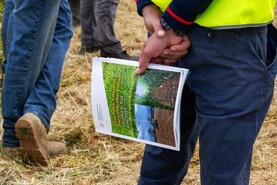Tillage Industry Ireland (TII) is looking for €132m in the upcoming budget. The group said the requests "are already set out in the Food Vision for Tillage Report 2024".
Report 2024
This funding would provide a €250/ha tillage support payment for cereal and oilseed rape crops grown in 2025, provide a tillage expansion and sustainability payment of €400/ha in a field’s first year out of grass and a €250/ha payment to reward existing practices and encourage further adoption of sustainability measures at farm level.
TII said the sector is under “many financial pressures” and commented that it was requesting “interim financial support to help stabilise incomes and prevent further area loss if the predicted low prices for 2025 come to pass”.
€10m of the requested amount would also go to 40% grant aid for native grain storage, equipment to treat native grain for pig feed and value-added segregation. €2m would support pilot schemes to test added value opportunities for tillage crops.
The organisation, which represents farmers, input suppliers, grain merchants and consultants, also asked the Government to consider relief on excessive land rents driven by Government policy, a leasing benefit to recognise the carbon benefits of tillage and enhanced capital relief on machinery investments “which can occur in the occasional favourable income year”.
The group also suggested that income from voluntary environmental schemes be given tax-free status where additional cost is incurred.
The group added that despite a Government target to increase area cereal crop area has declined by 60,000ha in the past decade.
“This decline in area is due mainly to significant land pressures from other sectors which are driven by Government policy,” a statement read.
“Irish cereal crops have a proven very low carbon footprint and a big area in crops helps to reduce agricultural emissions obligations for our livestock sectors. Tillage is the only sector that can push its carbon footprint to net zero or beyond, but it is being threatened by cheap imports of unknown carbon footprint,” the statement read.






 This is a subscriber-only article
This is a subscriber-only article










SHARING OPTIONS: